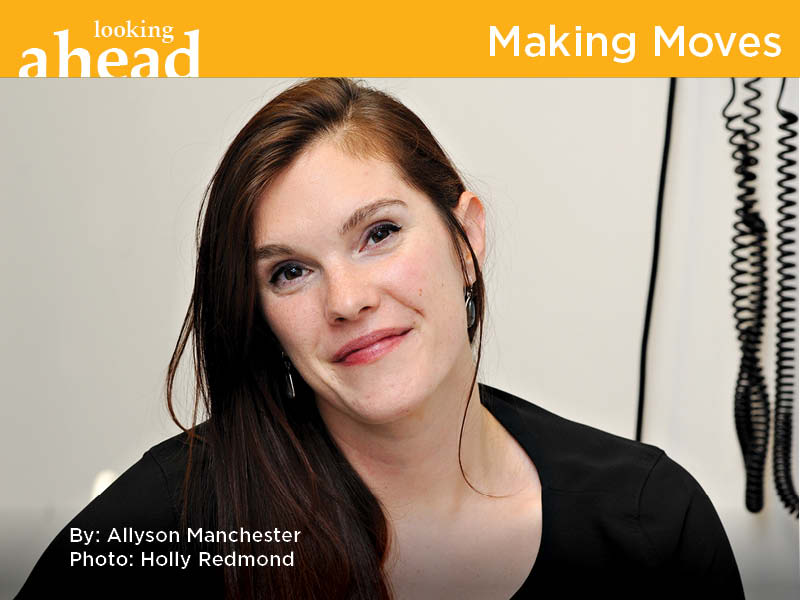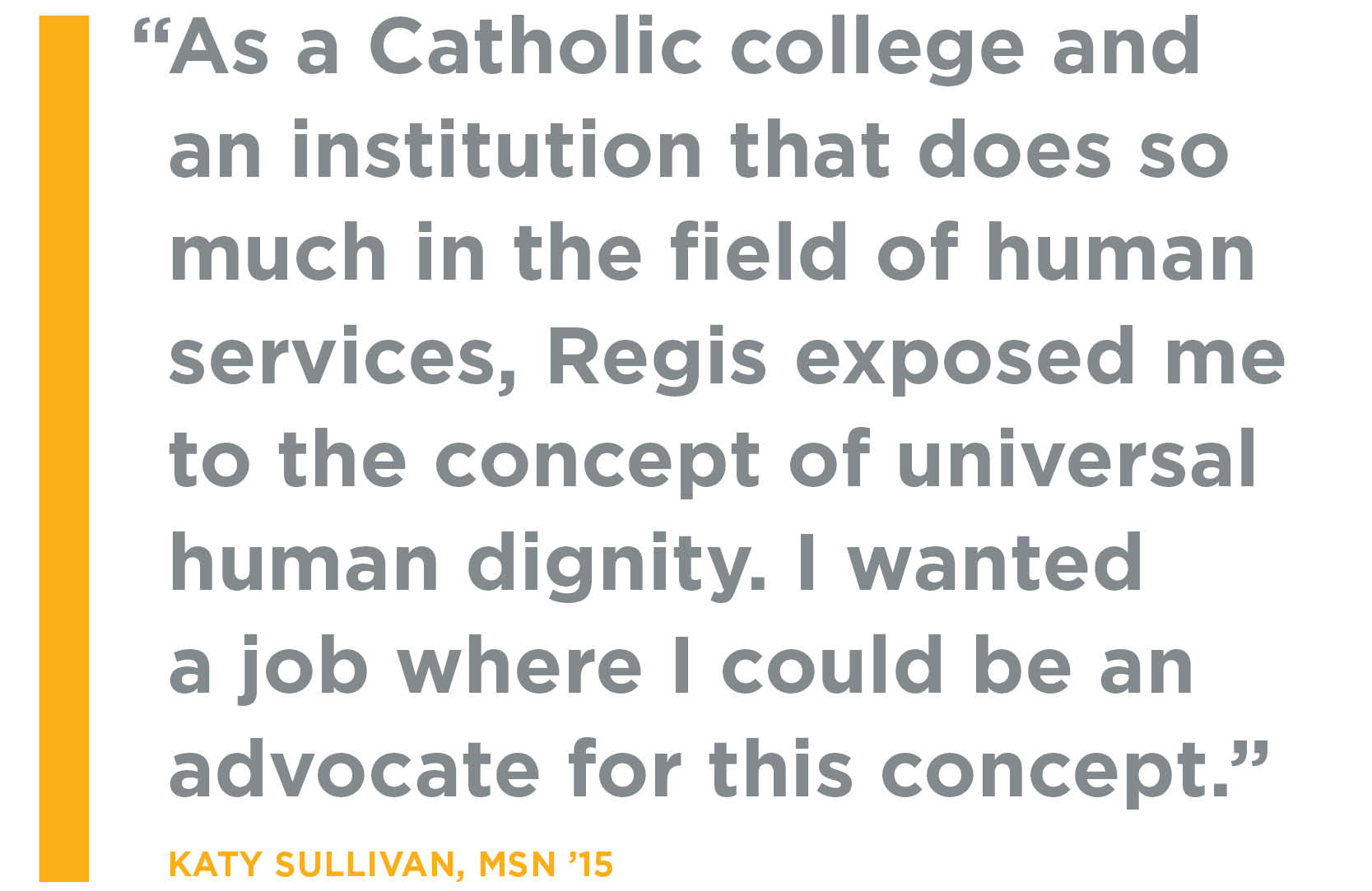
A shift from politics to nursing creates a lasting impact
In 2009, Katy Sullivan, MSN ’15, landed her first job as a legislative aid for a Massachusetts State Representative. As a recent graduate of University of Massachusetts Amherst with bachelor’s degrees in political science and English, she was excited to immerse herself in the vibrant world of politics. She attended meetings on behalf of her representative, took constituent calls, and helped with information gathering and summarizing. As her work continued, however, she felt a growing disconnect between her expectations for the career and the reality of her daily life in the office.
Looking back, Sullivan admits that she entered the field of politics with a bit of naiveté. “I assumed that Aaron Sorkin, the writer for The West Wing, would be writing my dialogue as a legislative aid,” she laughs as she considers her favorite television show at the time. “I expected the job to involve idealistic gestures and conversations about larger political concepts.”
Instead, Sullivan found herself feeling as though she didn’t have the specialized training that she needed to make an impact. “I couldn’t support people in the way that I wanted to, and that wore on me. I was so nervous all the time that I never remembered anyone’s name. This is a pretty significant disadvantage when you’re working in politics,” she admits.

At this point, she began to consider a career change and followed her instincts. “One part of my job that I loved was helping people to navigate the public health care system,” she says. “I started to think about how I could give more hands-on support.”
After speaking with Mary Ann Hart, PhD, a colleague at the State House who is also a Regis associate professor in health administration, Sullivan finally summoned the courage to make a move to nursing—a path that had sparked her interest back in high school. “I talked with Mary Ann about my options and she encouraged me to apply to the direct-entry nurse practitioner program at Regis,” recalls Sullivan, whose mother is a nurse. “I trusted Mary Ann’s advice because I look up to her and admire the work that she does at the state level. She advocates for all kinds of organizations that do the work I had always wanted to do.”
With Hart’s support, Sullivan enrolled in the Regis Master of Science in Nursing (MSN) Nurse Practitioner (NP) track, attending day classes and also taking a night-shift job at a local hospital. Although this lifestyle and income change may have proven jarring for some, Sullivan felt a sense of relief as soon as she started taking her nursing prerequisites. “I had made a bold decision based on my gut. I think that alleviated a lot of the discomfort of making a change,” she says.
Courses in community nursing and broader nursing policy helped Sullivan to develop a focus on community health. “As a Catholic college and an institution that does so much in the field of human services, Regis exposed me to the concept of universal of human dignity. I wanted a job where I could be an advocate for this concept.”
One of her first clinical experiences in the MSN program was at the New England Center for Homeless Veterans in Boston. This experience reaffirmed her desire to work with vulnerable populations. Then, after finishing her MSN degree in three years and working several nurse practitioner jobs, she took a position in a health care for the homeless program at Families First Health and Support Center in Portsmouth, New Hampshire. On the job, she found her place in a tight-knit community of health professionals.
Currently, Sullivan is a nurse practitioner at Manchester Health Care for the Homeless in New Hampshire. She spends most of her time at New Horizons, a coed shelter in the city of Manchester. The shelter includes two exam rooms and several offices. Sullivan treats a mix of scheduled and walk-in patients, many of whom struggle with opioid use disorder. Her work ranges from prescribing buprenorphine (otherwise known as Suboxone, a prescription medicine used to treat patients who are addicted to opioid drugs) to simply bearing witness to patients’ stories.
“This clinic is an amazing place to work because it is truly integrated,” Sullivan explains. “When treating patients, I get to call on the expertise of four full-time therapists, six nurses, and NP and MD colleagues. We also have an incredible street outreach team that connects us with local hospitals and community service organizations.” Sullivan explains that any patient success story is the result of a team effort. “Although it doesn’t always work out perfectly, it’s a great day when we can work as a team to give our clients the opportunity to turn their lives around.”
Sullivan’s career as a nurse practitioner has brought her the certainty that she lacked in her days at the State House. She is grateful to now have a fulfilling job that aligns with her fundamental values.
“I was initially drawn to this career because I wanted to be an advocate for the concept of universal human dignity,” she explains. “I learned about that concept during my education at Regis and am now fortunate to work with a team that embodies it every day. In a niche of medicine that can often be frustrating, we need to offer hope to our clients. I am honored to play a role in that mission.” Learn more about the Young School of Nursing.
Read more articles
Read the entire magazine online